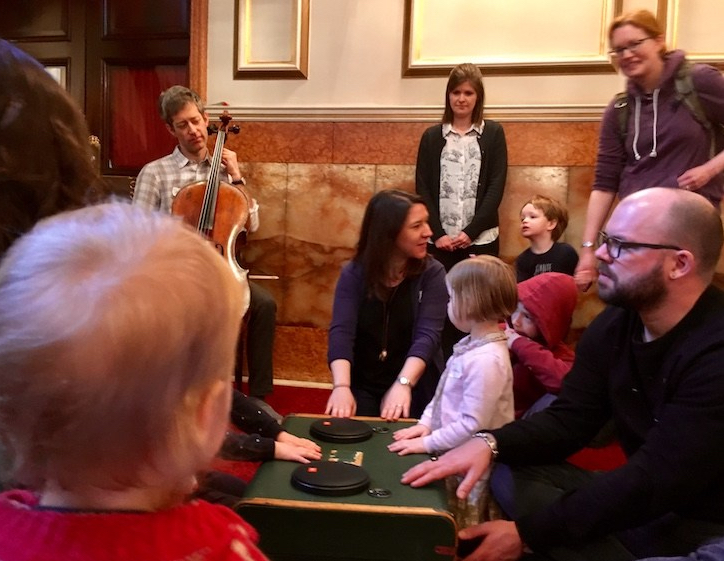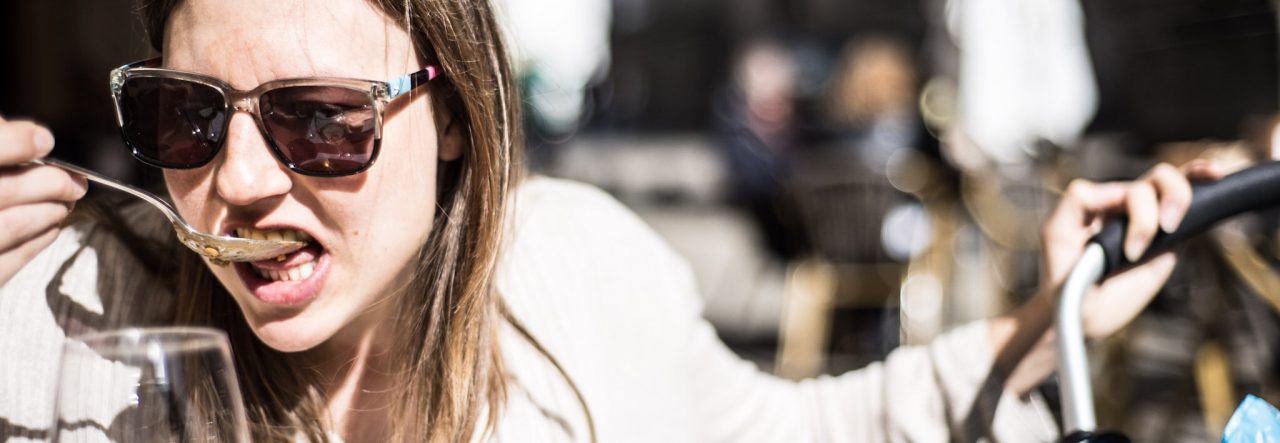
The Family Sounds workshop has already begun by the time the baby girl and I arrive (late) at the Wigmore Hall, and the foyer is full of enticing sounds: lilting song, drum beats emanating from a suitcase, sliding notes from a violin, a flute and a cello. Part of the extensive programme of family events at the hall, the workshop is aimed at under-5s.
The baby girl gets a name badge, we draw close to the magic suitcase and her name is pulled into the song. Workshop leader Esther Sheridan explains that we’ll be going on a journey together, collecting sounds in the suitcase to create a new piece of music. She then leads us all downstairs to the hall’s Bechstein Room, where the floor is littered with percussion instruments waiting for players.
The kids get stuck in with the shakers while the musicians improvise around a piece specially written by the Wigmore’s composer-in-residence Helen Grime. It’s wonderful to be able to listen to multi-instrumental music in the round, and Sheridan and the other workshop leaders hit the right balance in terms of atmosphere as they lead musicians and children into silence and sound and back again. The mood is informal, so everyone feels relaxed, but it’s not a free-for-all – we know where our focus is expected to be.
The next phase of the workshop, in which the group moves to different areas in the room to experiment with sounds of the forest, city and space, is less successful. The music is excellent – the musicians playing in unusual ways to create otherworldly and unexpected noises – but the interactive element feels undercooked. While the older and more independent children have a ball suggesting sounds to take with us on our journey, the little ones are sometimes left behind. As a result, the session begins to drag – two hours is a long time to ask babies and toddlers to pay attention.
That said, when the musicians and workshop leaders are engaging with the children one-on-one (shout out to Gawain Hewitt and his musical plant), and Grime’s evocative music is filling the space, this workshop is a delight. Venues like this one can feel rather forbidding; by throwing open the doors to families, the Wigmore Hall is doing important work in democratising classical music and developing the audiences of the future. It’s good to see.
